Since I started working as a geneticist in the early 1960s, the field has changed considerably. James Watson, Francis Crick…
Author David Suzuki
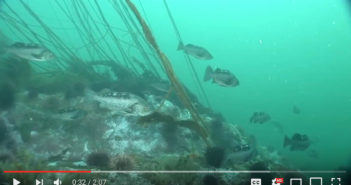
The federal government recently created two marine protected areas in the Pacific region and has committed to increase ocean protection from one per cent to 10 by 2020. But will this be enough?

The federal government recently created two marine protected areas in the Pacific region and has committed to increase ocean protection…
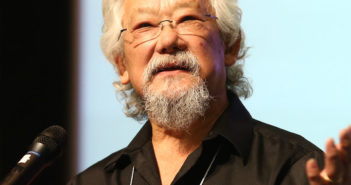
If you own a smartphone, you have more computing power at your fingertips than NASA scientists had when they put people on the moon in 1969! And it’s in a small device, unlike the massive hardware the space agency used.
If you own a smartphone, you have more computing power at your fingertips than NASA scientists had when they put…

We recently highlighted the faulty logic of a pseudoscientific argument against addressing climate change: the proposition that because CO2 is necessary for plants, increasing emissions is good for the planet and the life it supports. Those who read, write or talk regularly about climate change and ecology are familiar with other anti-environmental arguments not coated with a scientific sheen.
We recently highlighted the faulty logic of a pseudoscientific argument against addressing climate change: the proposition that because CO2 is…
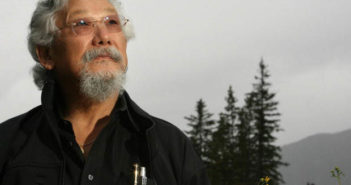
In 2011, I travelled with my family down Yukon’s Hart River. It’s one of seven pure rivers in the Peel River watershed, a 68,000-square-kilometre wilderness that’s been at the centre of a legal dispute for many years and a land-use planning debate for more than a decade. For two weeks, we fished from the river’s vibrant green waters and gazed at the limestone and dolostone peaks of the Ogilvie Mountains.
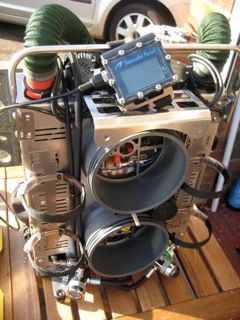
In 2011, I travelled with my family down Yukon’s Hart River. It’s one of seven pure rivers in the Peel…

Apparently, fossil fuel companies protect watersheds and rivers by removing oil. That’s according to comments on the David Suzuki Foundation Facebook page and elsewhere, including this: “The amount of contamination occuring [sic] from extraction is far less than if we just left the oil there to continue polluting the waterways.”
Apparently, fossil fuel companies protect watersheds and rivers by removing oil. That’s according to comments on the David Suzuki Foundation…
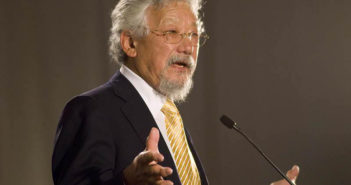
The battle lines are drawn — in some cases literally. On one side are those reaping massive profits from fossil fuels, determined to extract and sell as much as possible before the market dries up. On the other are those who see the amazing potential of energy conservation, renewable energy and other innovations to reduce pollution, greenhouse gas emissions, ecosystem destruction and exploitation of valuable non-renewable resources.
The battle lines are drawn — in some cases literally. On one side are those reaping massive profits from fossil…

Neskantaga First Nation in Ontario has had to boil water since 1995. “We’re over 20 years already where our people haven’t been able to get the water they need to drink from their taps or to bathe themselves without getting any rashes,” Neskantaga Chief Wayne Moonias told CBC News in 2015. Their water issues have yet to be resolved.

Neskantaga First Nation in Ontario has had to boil water since 1995. “We’re over 20 years already where our people…
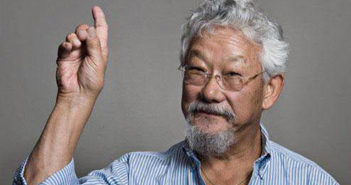
Seeing terms like “post-truth” and “alternative facts” gain traction in the news convinces me that politicians, media workers and readers could benefit from a refresher course in how science helps us understand the world. Reporting on science is difficult at the best of times. Trying to communicate complex ideas and distil entire studies into eye-catching headlines and brief stories can open the door to misinformation and limited understanding.
Seeing terms like “post-truth” and “alternative facts” gain traction in the news convinces me that politicians, media workers and readers…
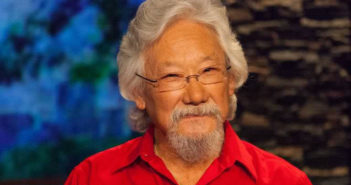
In the 1990s, the David Suzuki Foundation embarked on a program to develop community economic projects with coastal First Nations. Between 1998 and 2003, my wife and foundation co-founder, Tara Cullis, established relationships with 11 coastal communities from the tip of Vancouver Island to Haida Gwaii and Alaska, visiting each several times.
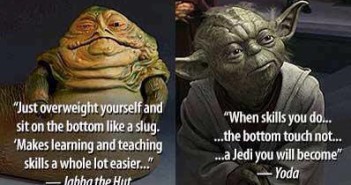
In the 1990s, the David Suzuki Foundation embarked on a program to develop community economic projects with coastal First Nations.…
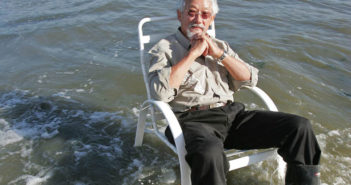
Since the 1950s, almost everything about work in the developed world has changed dramatically. Rapid technological advances continue to render many jobs obsolete. Globalization has shifted employment to parts of the world with the lowest costs and standards. Most households have gone from one income-earner to at least two. Women have fully integrated into the workforce, albeit often with less-than-equal opportunities, conditions and pay. A lot of our work is unnecessary and often destructive — depleting resources, destroying ecosystems, polluting air, water and soil, and fuelling climate change.
Since the 1950s, almost everything about work in the developed world has changed dramatically. Rapid technological advances continue to render…
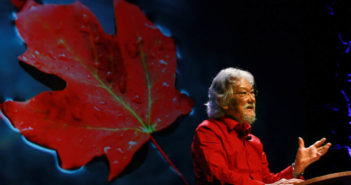
For decades, scientists have warned that we’re on a dangerous path. It stems from our delusion that endless growth in population, consumption and the economy is possible and is the very purpose of society. But endless growth is not feasible in a finite biosphere. Growth is not an end but a means.
For decades, scientists have warned that we’re on a dangerous path. It stems from our delusion that endless growth in…

If you fly over a forest and look down, you’ll see every green tree and plant reaching to the heavens to absorb the ultimate energy source: sunlight. What a contrast when you look down on a city or town with its naked roofs, asphalt roads and concrete sidewalks, all ignoring the sun’s beneficence! Research shows we might benefit by thinking more like a forest.
If you fly over a forest and look down, you’ll see every green tree and plant reaching to the heavens…

The longer we delay addressing environmental problems, the more difficult it will be to resolve them. Although we’ve known about climate change and its potential impacts for a long time, and we’re seeing those impacts worsen daily, our political representatives are still approving and promoting fossil fuel infrastructure as if we had all the time in the world to slow global warming.
David’s Suzuki’s column returns after taking a break for the holiday. The longer we delay addressing environmental problems, the more…

How much stuff will you give and receive this holiday season? Add it to the growing pile — the 30-trillion-tonne pile. That’s how much technology and goods humans have produced, according to a study by an international team led by England’s University of Leicester. It adds up to more than all living matter on the planet, estimated at around four trillion tons.
How much stuff will you give and receive this holiday season? Add it to the growing pile — the 30-trillion-tonne…

When government biologists in Canada want to learn where caribou are, they put radio-tracking collars on some animals and monitor their movements. This gives them a rough idea of where herds are and where they travel, but it doesn’t tell them much about a caribou population’s history — travel routes before their habitat was degraded or historical feeding, breeding and calving spots.
When government biologists in Canada want to learn where caribou are, they put radio-tracking collars on some animals and monitor…

Fishing is as emblematic to Canada as ice hockey. It’s also a way of life with a long tradition in coastal Indigenous communities. But since European contact, it’s been all but eliminated as an economic development opportunity for them.
Fishing is as emblematic to Canada as ice hockey. It’s also a way of life with a long tradition in…

The U.S. election was a chilling illustration of the atrocious state of public discourse. It doesn’t bode well for a country once admired for leadership in education and science.
The U.S. election was a chilling illustration of the atrocious state of public discourse. It doesn’t bode well for a…

Now what? Many people in the United States and around the world are dismayed that a bigoted, misogynistic, climate change denier has been elected to the highest office in what is still the world’s most powerful nation. His party controls the House and Senate, meaning pro-fossil-fuel, anti-climate-action representatives who reject overwhelming and alarming scientific evidence will hold the reins. It will be a government firmly in the pocket of the fossil fuel industry. But global warming isn’t going to pause for four years. It’s going to accelerate. Do we give up?
Now what? Many people in the United States and around the world are dismayed that a bigoted, misogynistic, climate change…
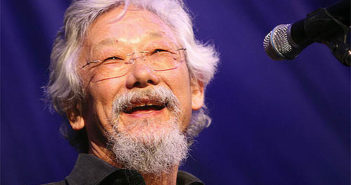
Clean air, water and soil to grow food are necessities of life. So are diverse plant and animal populations. But as the human population continues to increase, animal numbers are falling. There’s a strong correlation. A comprehensive report from the World Wildlife Federation and the Zoological Society of London found that wild animal populations dropped by 58 per cent between 1970 and 2012, and will likely reach a 67 per cent drop by 2020 if nothing is done to prevent the decline.

Clean air, water and soil to grow food are necessities of life. So are diverse plant and animal populations. But…
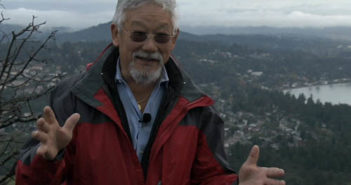
In July, a pipeline leak near Maidstone, Saskatchewan, spilled about 250,000 litres of diluted oil sands bitumen into the North Saskatchewan River, killing wildlife and compromising drinking water for nearby communities, including Prince Albert. It was one of 11 spills in the province over the previous year.
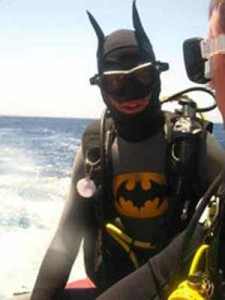
In July, a pipeline leak near Maidstone, Saskatchewan, spilled about 250,000 litres of diluted oil sands bitumen into the North…
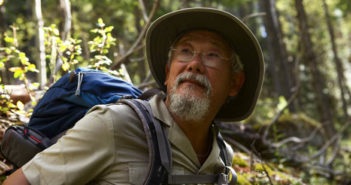
As leaves change colour and drop from trees, and a chill in the air signals the approach of winter, many of us are thinking of the fall harvest and hearty soups and dishes that will soon warm our bellies.
As leaves change colour and drop from trees, and a chill in the air signals the approach of winter, many…

I’ve often thought politicians inhabit a parallel universe. Maybe it’s just widespread cognitive dissonance, coupled with a lack of imagination, that compels them to engage in so much contradictory behaviour. Trying to appease so many varying interests isn’t easy.
I’ve often thought politicians inhabit a parallel universe. Maybe it’s just widespread cognitive dissonance, coupled with a lack of imagination,…

